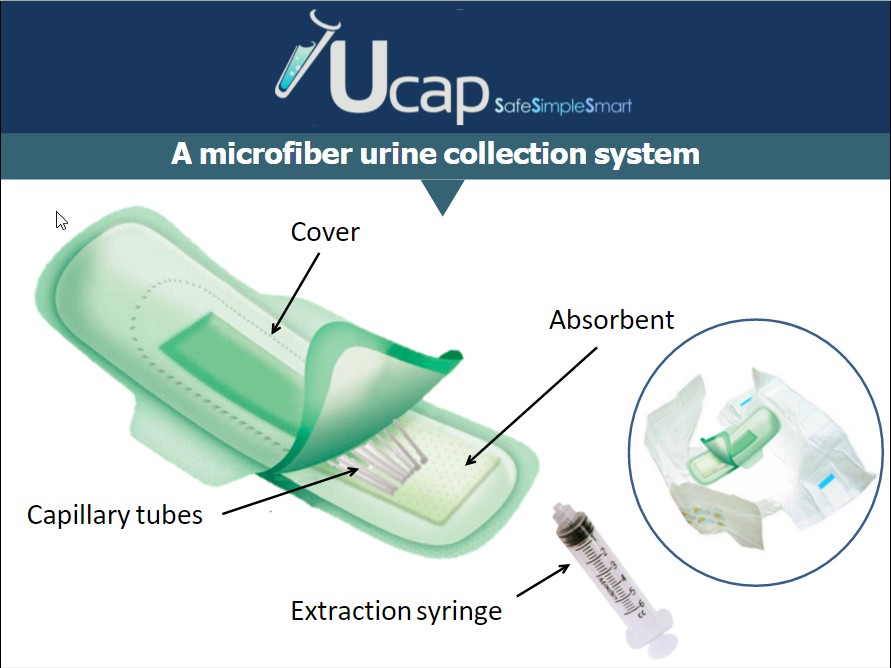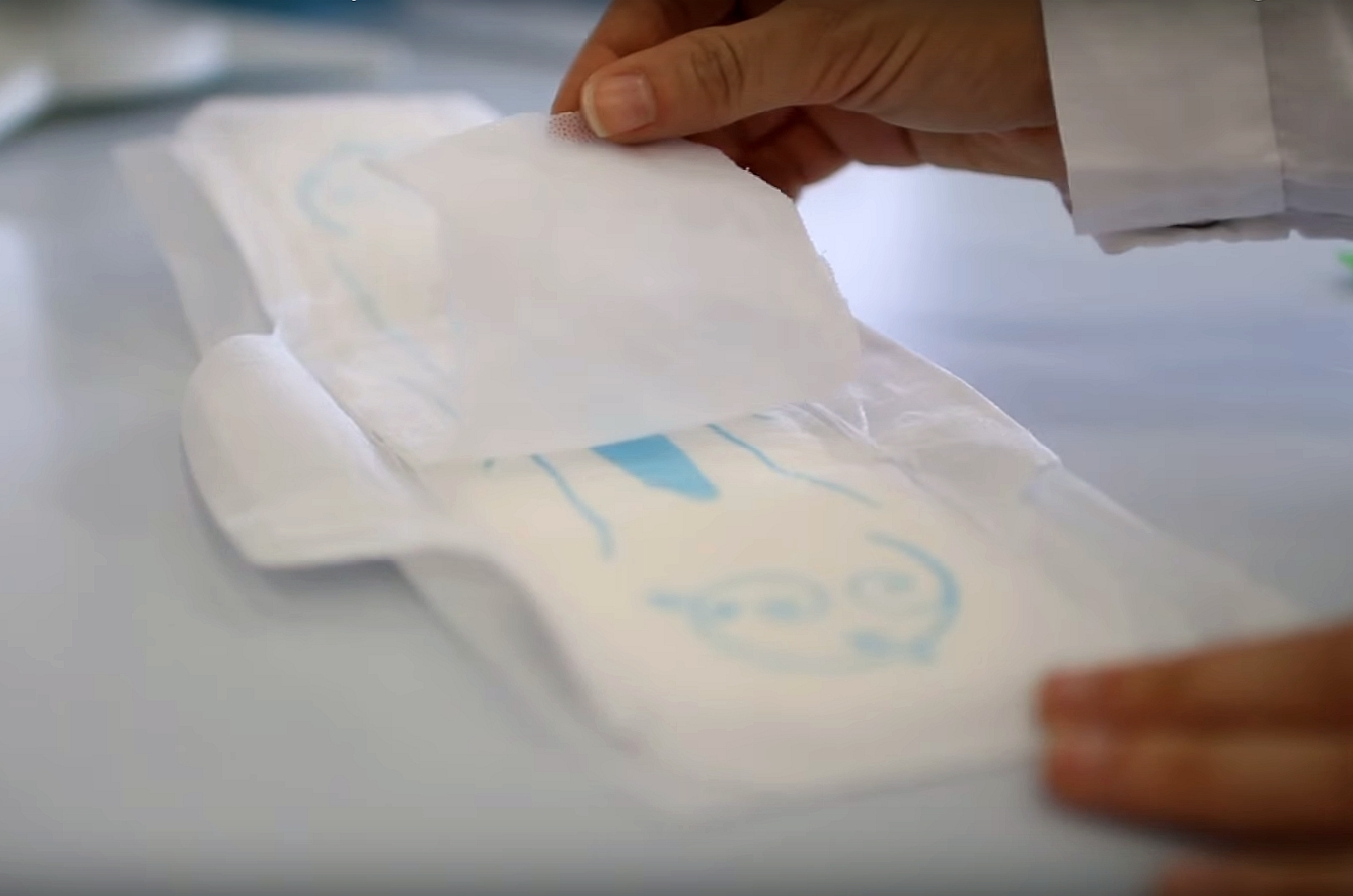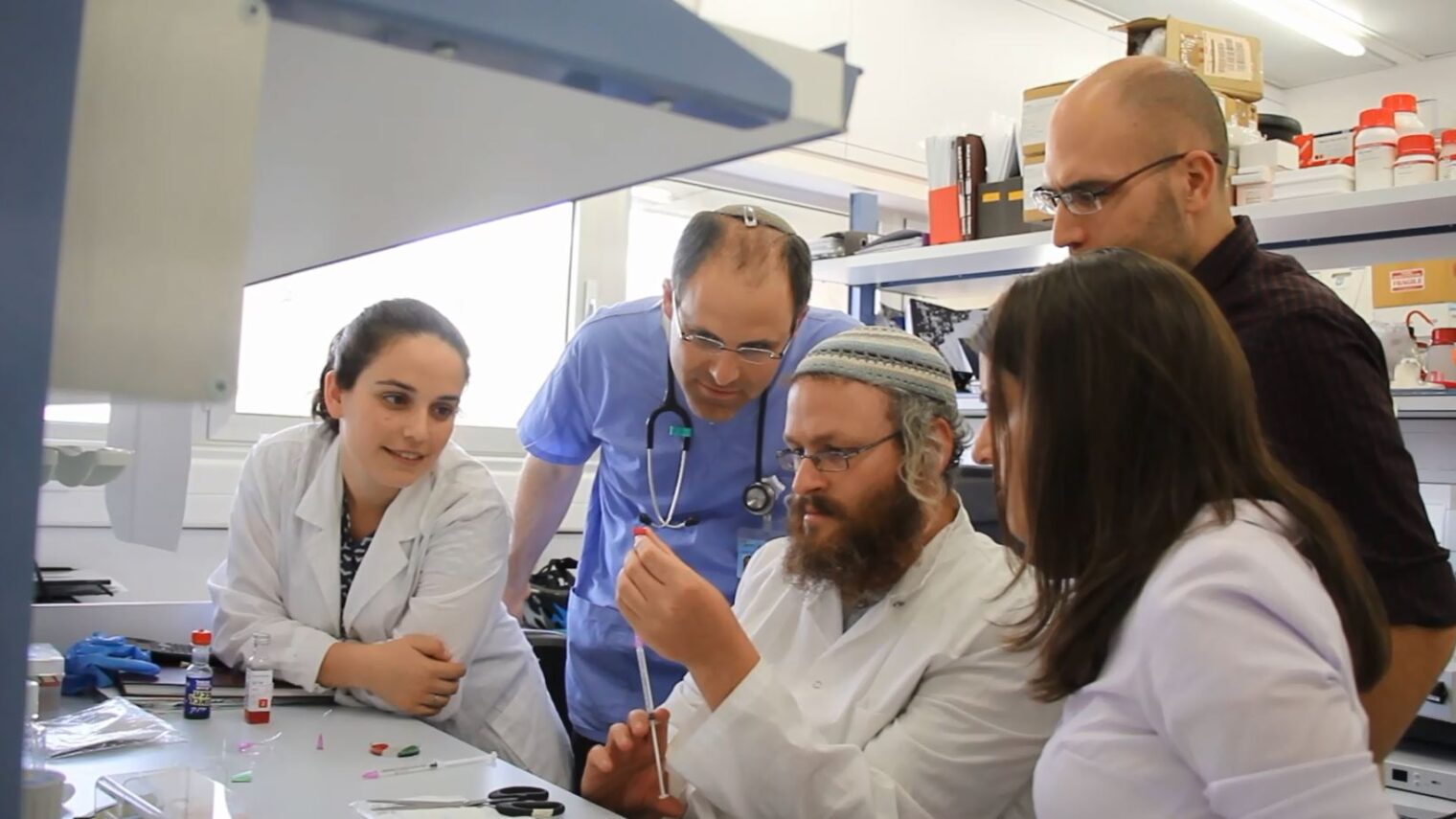Urinary-tract infection is a common medical condition, affecting up to 10 million individuals every year in the United States alone. Infants and incontinent adult patients are especially prone to these infections.
Yet diagnosis is complicated in both these populations because they cannot provide sterile urine samples in cups. Instead, nurses use adhesive urine-collection bags in which the collected fluid becomes contaminated by contact with skin-borne bacteria or fecal matter. Urinary catheters can be used for collection, but this is time-consuming, uncomfortable for the patient and introduces risk of infection.
So when a team of graduate students in the BioDesign: Medical Innovation program at the Hebrew University of Jerusalem asked nurses at the affiliated Hadassah Medical Center to describe problems begging for solutions, one emergency-room nurse asked for a device to get sterile urine samples from babies and the incontinent.
“One of our group members wanted to solve this problem through engineering and we thought how to offer an alternative,” says Eliezer Keinan, a doctoral student in the university’s MicroLiver Technologies Lab.
Keinan became lead engineer for the development of UCap, a non-invasive microfiber urine-collection pad.
The innovative absorption pad contains bundles of hollow glass microfibers that quickly draw urine samples from the pad, while the remainder of the liquid is absorbed by the pad’s polymer matrix.
“The basic solution was not so difficult because my research is the physics of microfluidics,” Keinan tells ISRAEL21c. “When we wash our hands, the drops of water stick to them, and this is the same force we use in micro-tubes to catch the urine quickly as it leaves the body” – before it touches skin and gets contaminated with bacteria.
“Contamination is so common that physicians often needlessly prescribe broad-spectrum antibiotics prophylactically,” increasing the risk of developing antibiotic resistant bacteria,” said Dr. Amir Orlev, a cardiologist and member of the multidisciplinary group that set out to solve the problem.
“At this level of sterility we only need a few microliters for the culture. If a very sterile urine sample has bacteria in it, we know it is from the urine and not from contact with the outer body,” Keinan explains.

In addition to Orlev and Keinan, the BioDesign team for UCap included Nitzan Guberman, a master’s student in computer science; and MBA students Itai Monnickendam and Simi Hinden.
“More than 11 million urine tests are carried out each year in infants and elderly patients,” said Monnickendam. “This represents a market size of over $200 million annually in the United States alone. Our low-cost urine collection pad has the potential to reduce pain and complications for millions of people, and to save time and expenditure for the healthcare system.”
Keinan says their patent-pending solution is unique and could also have other applications. “There is nothing in the market that offers the sterility that we offer, and it is a rather simple product with a short development time,” he says.
The team has had some meetings with manufacturers and hopes the UCap eventually will be commercialized.

BioDesign: Medical Innovation, sponsored by Boston Scientific and the Terumo Medical Corporation, takes outstanding medical fellows, bioengineering and business graduate students, and tutors them in the science and practice of bringing a medical innovation to the market. The program is directed by Prof. Yaakov Nahmias, director of the Alexander Grass Center for Bioengineering at the Hebrew University of Jerusalem, and Prof. Chaim Lotan, director of the Heart Institute at Hadassah Medical Center.
The innovations produced through BioDesign are commercialized by Yissum, the technology transfer company of the Hebrew University of Jerusalem, and Hadasit, the technology transfer company of Hadassah Medical Center.
For more information, email info@yissum.co.il














